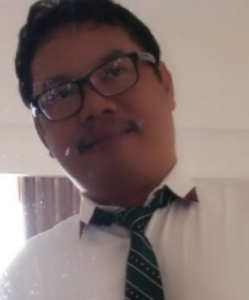IEVC 2019 | Program & Keynotes
Program Timetable Keynote & Capstone
Program
- PDF program. (Last updated on Aug. 6).
- HTML program. (Last updated on Aug. 13).
The session numbers 3A, 3B, 3C, 4A, 4B and 4C are displayed as 4A, 4B, 4C, 5A, 5B and 5C on the linked pages and the Easy chair system. The correct session numbers for August 23 are 3A, 3B, 3C, 4A, 4B and 4C. - Poster session program. (Upload on Aug. 19) Note: The numbers have changed.
- Poster session program. (Upload on Jul. 24)
Timetable
Wednesday, August 21
| LOBBY | |||
|---|---|---|---|
| 16:00-17:00 | Registration | ||
Thursday, August 22
| BINTANG BALLROOM 1 (Room 1) | BINTANG BALLROOM 2 (Room 2) | PULAU NIAS (Room 3) | |
|---|---|---|---|
| 8:20-17:00 | Registration (BOARD ROOM) | ||
| 9:00-9:30 | 1R: Inaugural Session | ||
| 9:30-10:20 | 1S: Keynote Speech #1: Dr. Laksana Tri Handoko & Dr. Agus Fanar Syukri | ||
| 10:20-10:35 | Short Break | ||
| 10:35-11:45 | 0P: Poster fast-forward Session (short presentation) | ||
| 11:45-13:30 | Lunch | ||
| 13:30-15:30 | 1A: Oral Session (Computer Vision) | 1B: Oral Session (Medical Image Processing) | 1C: Oral Session (Imaging Device) |
| 15:30-16:00 | Coffee Break | ||
| 16:00-17:40 | 2A: Oral Session (Image Processing) | 2B: Oral Session (Visualization) | 2C: Oral Session (Neural Network) |
Friday, August 23
| BINTANG BALLROOM 1 (Room 1) | BINTANG BALLROOM 2 (Room 2) | PULAU NIAS (Room 3) | |
|---|---|---|---|
| 8:30-17:00 | Registration (BOARD ROOM) | ||
| 9:00-9:50 | 2S: Keynote Speech #2: Prof. I Ketut Gede Darma Putra | ||
| 9:50-10:05 | Short Break | ||
| 10:05-10:10 | Video Presentation by Sponsors | ||
| 10:10-11:35 | 1P: Poster Session 1 | ||
| 11:35-13:20 | Lunch | ||
| 13:20-15:00 | 3A: Oral Session (CG Modeling) | 3B: Oral Session (General) | 3C: Oral Session (Medical and Training) |
| 15:00-15:30 | Coffee Break | ||
| 15:30-17:30 | 4A: Oral Session (CG Animation / CG Interaction) | 4B: Oral Session (General) | 4C: Oral Session (Signage and Language) |
| 18:00-20:00 | Banquet (Poolside in the hotel) | ||
Saturday, August 24
| BINTANG BALLROOM 1 (Room 1) | BINTANG BALLROOM 2 (Room 2) | PULAU NIAS (Room 3) | |
|---|---|---|---|
| 8:30-11:30 | Registration (BOARD ROOM) | ||
| 9:00-10:30 | 2P: Poster Session 2 | ||
| 10:30-10:45 | Short Break | ||
| 10:45-11:35 | 3S: Capstone: Prof. Rolly Intan | ||
| 11:35-11:55 | 2R: Closing & Award | ||
Keynotes & Capstone
Keynote Speech #1: Science and Technology Development Strategy of the Indonesia Institute of Sciences
Abstract: The Indonesia Institute of Sciences (LIPI) was founded in 1967, with the task of the Indonesian government to develop science in Indonesia, which includes natural sciences, engineering sciences, and social sciences. In addition to LIPI, Indonesia has other research institutions, including those in ministries. In 2019 a new national system of science, technology and innovation law has been born, in which government-owned research institutes will be integrated into national research and innovation bodies. LIPI must change the policy and strategy in developing science, technology and innovation for a better Indonesia, especially towards an advanced Indonesia in 2030 and a century in Indonesia in 2045.
Speaker: Dr. Laksana Tri Handoko
Chairman of Indonesia Institute of Sciences (LIPI)
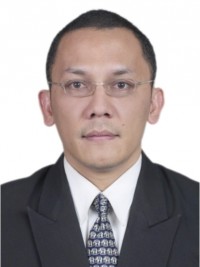 Dr L.T. Handoko, born in Malang, East Jawa, 1968. He obtained his bachelor degree from Kumamoto University in 1993 in physic, master dan doctor degree from Hiroshima University in Physic in 1995 and 1998. He was Head of Research Center for Informatic, Indonesia Institute of Sciences 2012-2014, Deputy of Chairman for Technical Sciences 2014-2018, and Chairman of LIPI 2018-now. He has an interest in elementer particle physics, data-mining, and computational science. He has published more than 130 articles in international journals and conferences. Currently, as LIPI Chairman he is actively involved in the development of science and technology policy and strategy in Indonesia.
Dr L.T. Handoko, born in Malang, East Jawa, 1968. He obtained his bachelor degree from Kumamoto University in 1993 in physic, master dan doctor degree from Hiroshima University in Physic in 1995 and 1998. He was Head of Research Center for Informatic, Indonesia Institute of Sciences 2012-2014, Deputy of Chairman for Technical Sciences 2014-2018, and Chairman of LIPI 2018-now. He has an interest in elementer particle physics, data-mining, and computational science. He has published more than 130 articles in international journals and conferences. Currently, as LIPI Chairman he is actively involved in the development of science and technology policy and strategy in Indonesia.
Speaker: Dr. Agus Fanar Syukri
Head of Research Center for Testion Technology, Indonesian Institute of Sciences (LIPI)
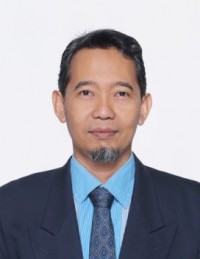 Dr Agus Fanar Syukri, born in Demak, Central Java, 1969. He obtained his bachelor degree from Saga
Dr Agus Fanar Syukri, born in Demak, Central Java, 1969. He obtained his bachelor degree from Saga  University in 1994 in Informatics, master degree form Japan Advanced Institute of Science dan Technology (JAIST) in 1998 in Information Management, and doctor degree from the University of Electro-Communications (UEC), Tokyo Japan, in 2005, in Information Management too. He has an interest in socio-informatics, information management, knowledge management, and quality management. He has published more than 70 articles in international journals and conferences. Currently, as Head of Research Center for Testing Technology LIPI he is actively involved in the development of quality management and testing technology in Indonesia.
University in 1994 in Informatics, master degree form Japan Advanced Institute of Science dan Technology (JAIST) in 1998 in Information Management, and doctor degree from the University of Electro-Communications (UEC), Tokyo Japan, in 2005, in Information Management too. He has an interest in socio-informatics, information management, knowledge management, and quality management. He has published more than 70 articles in international journals and conferences. Currently, as Head of Research Center for Testing Technology LIPI he is actively involved in the development of quality management and testing technology in Indonesia.
Keynote speech #2: Digital Disruption Technology
Abstract: At the moment the disruptive digital era is starting and in the future the development of this technology will be even more intense. All fields of life including all business sectors are inevitable from this technology. The movement of changes brought about by this technology follows the rhythm of speed, surprises, and sudden shifts. Running things by the right way is not enough to face this era even less by the wrong way.
Why is Digital Disruption capable of bringing such great changes? The key is in the presence of Cloud Computing technology, internet of things, Big Data, and Machine learning / Artificial intelligence, and absolutely also related to business models innovation.
Furthermore, disruptive issues will be discussed that are carried and occur in several fields of technology such as biometrics and computer graphics.
Speaker: Prof. I Ketut Gede Darma Putra
Information technology department of Udayana University, Bali, Indonesia.
He, born in Bali, 1974 is a lecturer in information technology department of Udayana University, Bali, Indonesia. He obtained his Doctorate degree from Gadjah Mada University Indonesia in 2007, and obtained the title of Professor in 2014. Prof. Darma Putra has an interest in image processing, biometrics and data mining. He has published more than 45 articles in international journals and conferences, has more than 10 software copyrights, and has also published several books including biometrics and digital image processing books. Currently, He is actively involved in the development of e-government in several governments in Bali and is also pursuing the development of digital services based for human centered society.
Capstone: Soft Computing Techniques for Constructing Intelligent Information System
Abstract: Uncertainty cannot be avoided in our real world application. Uncertainty has already influenced many theories and concepts in modern science as a great utility in solving many real world problems essentially. Uncertainty is also represented in human communication that usually uses perception-based information. Therefore, it is necessary to construct a computer-based information system called “Intelligent Information System” that is able to process perception-based information. In the future through the Intelligent Information System, humans are able to communicate with computers in the level of perception-based information. In the perception-based information, the information might be incomplete, imprecise, fragmentary, vague, contradictory, etc. All characteristics of information are considered as various types of uncertainty. They need a hybrid soft computing techniques to construct the intelligent information system.
Speaker: Prof. Rolly Intan
Informatics Department of Petra Christian University, Surabaya, Indonesia.
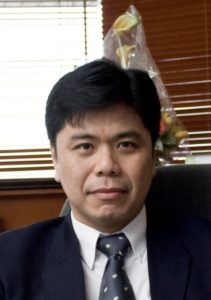
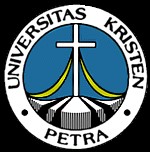 He was the rector (president) of Petra Christian University from 2009 to 2017. His Doctor of Engineering degree was obtained in 2003 from Meiji University, Tokyo, Japan. He also received his Doctor honoris causa in Business Administration from Dongseo University, Busan, South Korea. Prof. Rolly Intan has research interests in how to apply Computational Intelligence and Soft Computing methods especially Fuzzy Sets Theory, Rough Sets Theory and Granular Computing in constructing Intelligent Information System. He has already published more than 80’s papers in international journals and reputable international conference proceedings.
He was the rector (president) of Petra Christian University from 2009 to 2017. His Doctor of Engineering degree was obtained in 2003 from Meiji University, Tokyo, Japan. He also received his Doctor honoris causa in Business Administration from Dongseo University, Busan, South Korea. Prof. Rolly Intan has research interests in how to apply Computational Intelligence and Soft Computing methods especially Fuzzy Sets Theory, Rough Sets Theory and Granular Computing in constructing Intelligent Information System. He has already published more than 80’s papers in international journals and reputable international conference proceedings.

